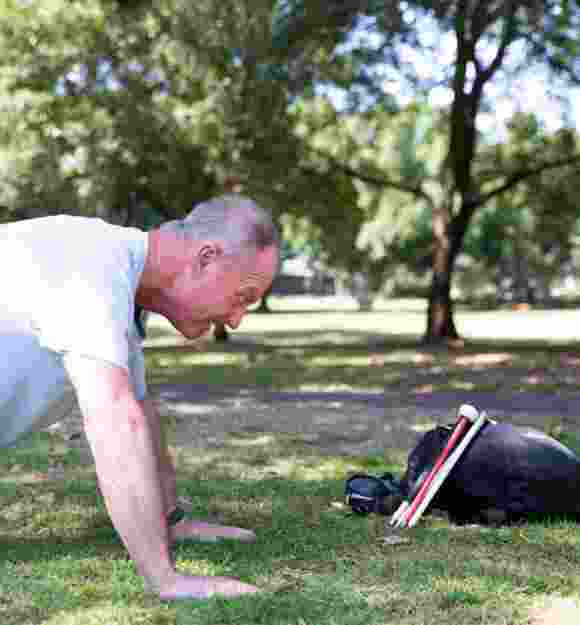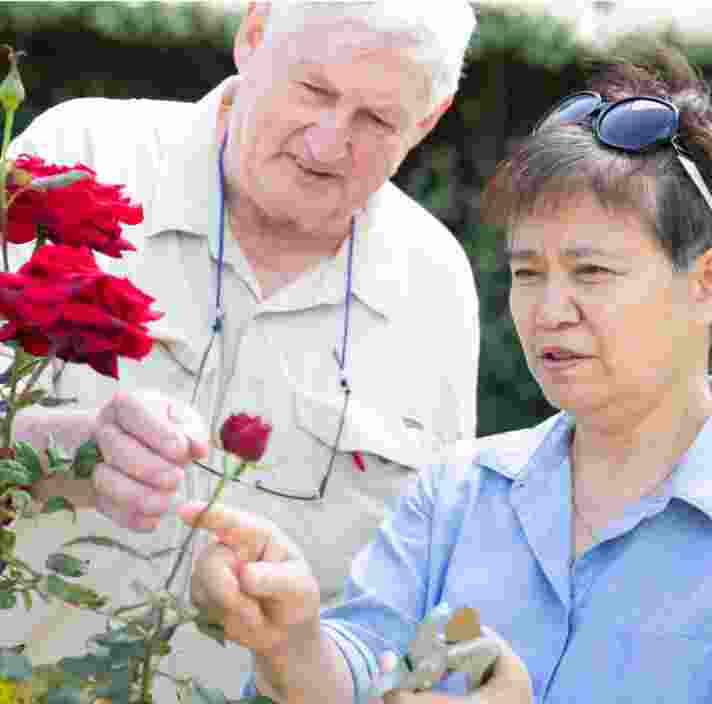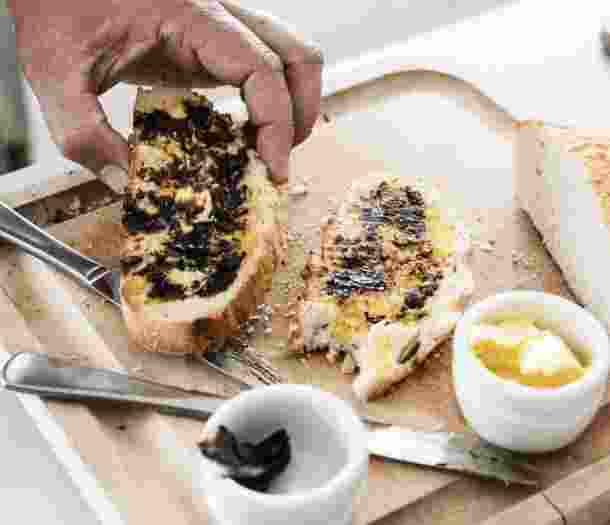On this page:
What is the Occupational Therapy Service?
Our Occupational Therapy Service aims to support you to participate in your everyday activities around the home.
Our Occupational Therapists specialise in working with people with low vision and blindness to do everyday things independently and safely. They can support you to achieve your goals through development of new skills, exploring alternative ways to do things, making changes to the home environment, and more. Our Occupational Therapy Service is available to school aged children, adults and older adults.

What goals could the Occupational Therapy Service support me to achieve?
Our Occupational Therapists can work with you to achieve goals related to:
- Self-care: things you do to look after yourself to remain independent and active in everyday life e.g. putting on make-up, identifying toiletries and coordinating outfits.
- Maintaining your household: cleaning, laundry and shopping tasks.
- Meal Preparation and Cooking: all the tasks required when we prepare and coo food e.g. chopping ingredients, using appliances and identifying expiration dates.
- Leisure: activities you do for relaxation and enjoyment e.g. listening to audiobooks and gardening
- Home Set-up: Exploring options that can maximise your safety in the home e.g. lighting and smart home devices.
How will an Occupational Therapist assist me?
Our Occupational Therapists will support you by:
- Gathering information about your vision.
- Listening to the impact your low vision or blindness is having on your ability to complete daily activities.
- Looking at how you are currently completing your daily activities.
- Finding out what is most important to you, and what goals they will be able to support you to achieve.
- Discussing and demonstrating equipment like liquid level indicators or talking clocks that can help make tasks easier.
- Looking at your environment and suggesting changes that may assist you to complete your activities such as improving lighting at home.
- Teaching skills and strategies that will assist you to complete tasks more easily or confidently.
- Linking in with other supports along the way.
Our Occupational Therapists can meet you at home, in the community, over the phone or using videoconference software.
What funding can I use to receive Occupational Therapy supports?
Occupational Therapists can enable you to perform all kinds of practical tasks.
Guide Dogs is a registered NDIS provider and Aged Care provider.
Many people can access this service through their NDIS plan or Home Care package.
Find out more about funding programs and supports.
We understand that sometimes people who need services may not be eligible to receive government funding.
If you have low vision or blindness and you do not have access to external funding, we will support you. We will understand your goals and develop a plan to achieve them, using funding provided by generous donations from the community.

How do I find out further information?
Let's start the conversation!
If you would like further information about our Occupational Therapy service or would like to enquire about receiving support from one of our Occupational Therapists, please:
We welcome referrals and enquiries from individuals, families, health professionals and community organisations.
Enquire about this service
Start your journey towards greater independence today
Ready to continue?
Seems like you have filled this form earlier. Let’s pick up where you left off.

